“讨好型人格”上热搜,这些典型表现,你占几条? What Is People-Pleasing?
中国日报双语新闻 2021-01-18 10:29

日前,剧集《听见她说》携话题“你是讨好型人格吗?”登上微博热搜。
该剧由赵薇执导,呈现了游离于公众视野之外的女性境况。在最终集播出时,“讨好型人格”这个词引起了广泛的共鸣。
该剧总结了几个讨好型人格的常见表现,看看你占几条?
❶Being the first one to apologize.
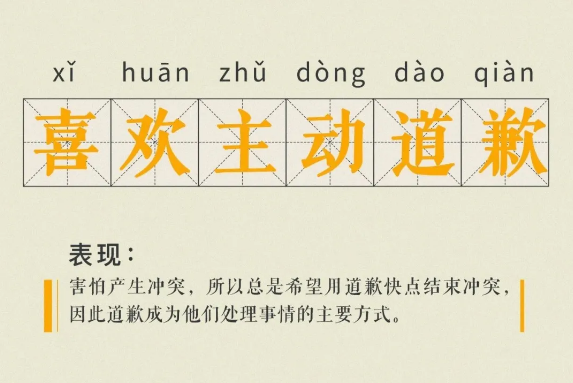
❷Catering to other people’s needs.
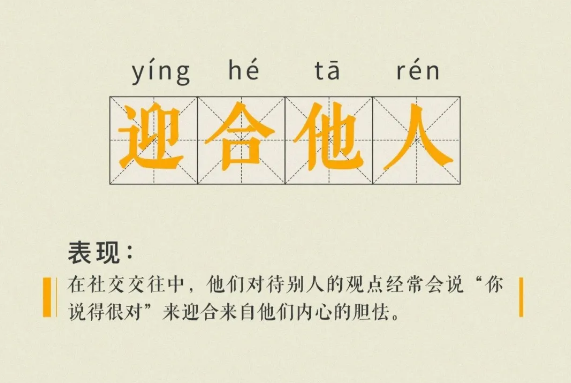
❸Constantly compromising.
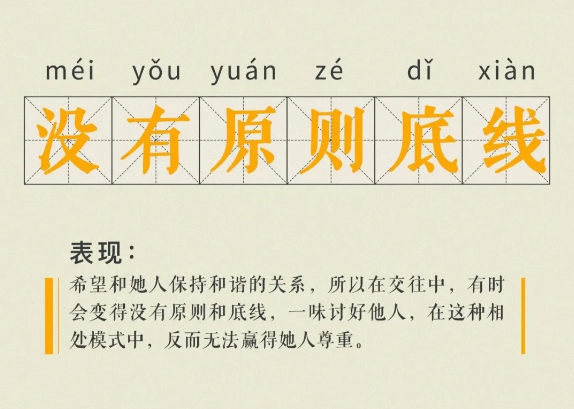
❹Not knowing how to say no.
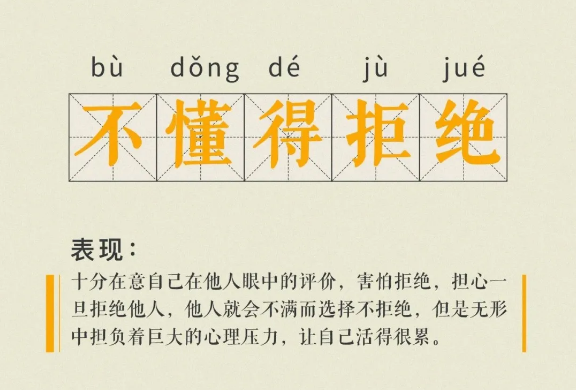
❺Averse to ask for a favor.
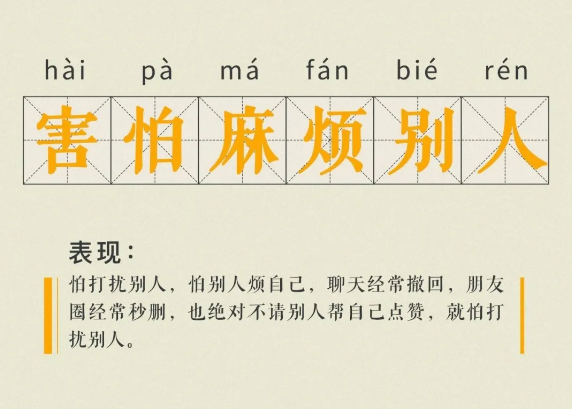
❻Enduring censure silently.
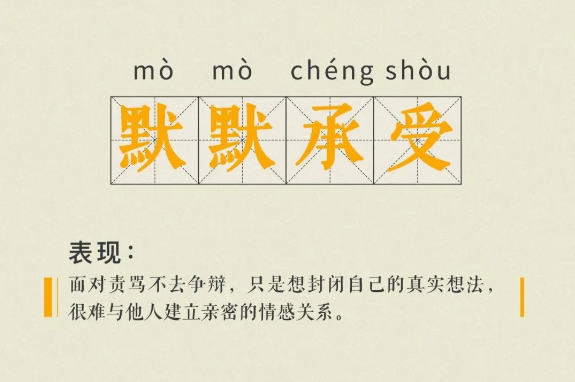
❼Afraid of expressing ideas.
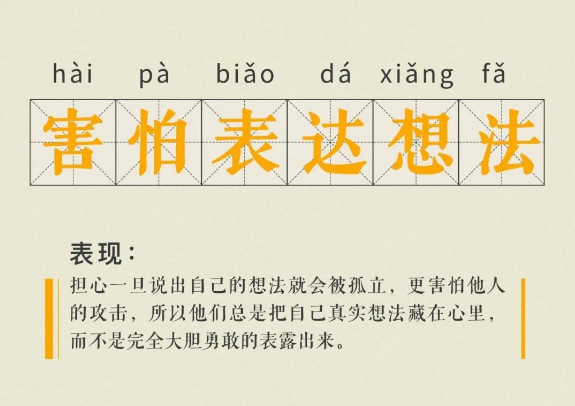
❽Afraid of negative comments.
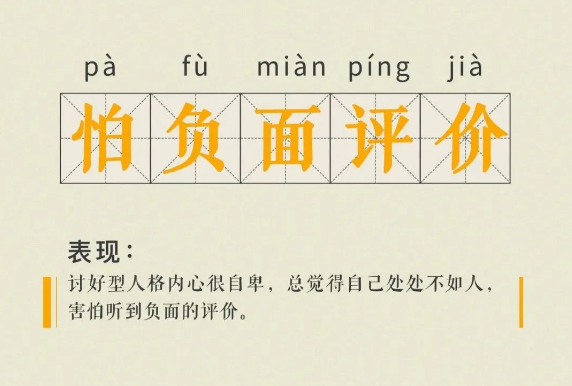
网友们几乎是条条“中枪”。“在乎”、“折磨”、“委屈”、“累”、“害怕”成为了评论里的高频词。
•九宫格扎心了,我全中
•反复刷聊天记录看是不是自己哪里说错话了,对方才久久不回
•真的很不喜欢有冲突的环境,在嗅到一丝要冲突的味道就想原地消失,这也算是一种逃避吧
•厚着脸皮讨好别人就为了吃饭看电影不是一个人
•做什么事情总担心别人不开心,所以哪怕自己受点委屈,也要让别人满意,其实心里委屈死了
•要是场面气氛尴尬就觉得一定是自己的问题
•昨天我也尝试了说“不”,很爽,好像也没那么艰难。但说完之后还是会有负罪感,所以到底什么时候才能克服……
在英文中,这种“讨好型人格”通常被称为people-pleaser。
Psychology Today的文章解释说,“讨好者”的问题出在对自我价值的认识上。
For many, the eagerness to please stems from self-worth issues. They hope that saying yes to everything asked of them will help them feel accepted and liked.
很多讨好型人格的人之所以急于讨好别人是因为自我价值这块儿出了问题。他们希望自己做个老好人能换来接纳与喜爱。
Other people-pleasers have a history of maltreatment, and somewhere along the way, they decided that their best hope for better treatment was to try to please the people who mistreated them. Over time, for them, people-pleasing became a way of life.
另外一些讨好者以往受到过不好的对待,以至于在某个时间点,他们就决定,为了受到更好的对待,就要讨好这些虐待他们的人。长此以往,对这些人来说,讨好他人成了一种生活常态。
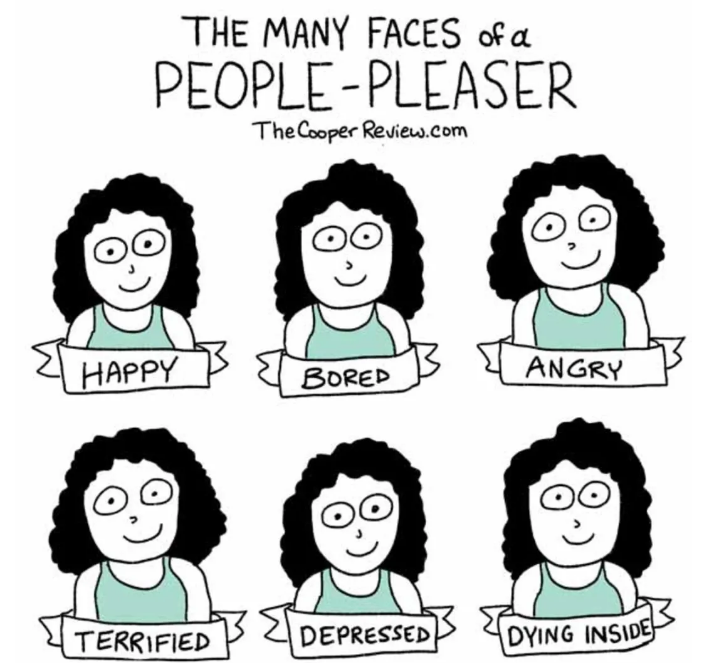
注意了,和people-pleaser长得很像的crowd-pleaser就不是“讨好者”的意思,crowd-pleaser意为“受到广泛喜爱或欢迎的人或事物”。
此外,过度在乎自己会不会被人讨厌,是不是受欢迎,有没有朋友等等都与misfit(与别人合不来的人;无法融入的人)的情况很相似。
如果你害怕受排挤、担心格格不入,那么不妨看下这个研究。
美国人格与社会心理学学会(Society for Personality and Social Psychology)官网介绍了哥本哈根大学Jochen Gebauer与曼海姆大学Jennifer Eck两位教授的研究项目。他们研究了这类人群的性格特点。
在开展这项涵盖200多万人的研究之前,两位教授在早期研究中发现misfit“想要融入群体”的愿望强烈程度是不同的——自信开放有创造力的人不太在乎自己能不能融入,而热心友好易于相处的人则特别想要融入大家。
Our most recent research examined a dataset that included more than 2.5 million people from 102 nations and compared two groups of people.
我们最近的研究调查了一个数据集,其中包括来自102个国家的250多万人,我们在该研究中比较了两组人。
The first group consisted of people with personality traits such as high levels of assertiveness, creativity, and openness, and low levels of warmth, niceness, and agreeableness. The second group contained people with the reverse personality traits.
第一组人的性格特点是:自信果决、富有创造力、坦诚直率、不热心、不友善、不易于相处。第二组人则性格特征与上述相反。
研究结果显示,大体上来说是这样的:
❶ Being a misfit doesn’t bother everybody.
并不是每个人都会因为格格不入而难过。
❷ Assertive, creative, and open people who don’t care all that much whether or not they fit in do not suffer as much from being a misfit as people who are warmhearted, nice, and agreeable who, then again, have a particularly strong desire to fit in.
比起那些很想合群的热情、好心、又易于相处的人来说,本就不怎么在乎是否合群的那些自信果决、富有创造力、坦诚直率的人因为无法融入群体而受到的创伤要小得多。
如果你是“讨好型”,那不妨在下一次讨好别人时偷偷问自己一句:“我爱ta胜过爱我自己吗?”
如果你发现别人是“讨好型”,那就别忘了主动友好待人,就像两位研究员在文章里说的:
The next time you see a nice but not very assertive person who doesn’t seem to fit into a particular group of people, it’s worth remembering that s/he is likely to feel particularly uncomfortable. To help this person feel better, you may want to talk to this person and look for things you have in common.
下次你要是遇到一个很友好但不太自信的人,ta看起来又不太合群的时候,那你要注意了,ta可能正因此而十分难过。要想帮助ta好过一点,你可以走上前去聊天,找找共同话题。
Notes
censure [ˈsenʃə(r)] n 严厉的批评;斥责;谴责
mistreat [ˌmɪsˈtriːt] v 虐待(残酷地、不友好地、不公正地对待)
agreeable [əˈɡriːəbl] adj 愉悦的;讨人喜欢的;宜人的
编辑:左卓
来源:Society for Personality and Social Psychology; Psychology Today


















 英语点津微信
英语点津微信 双语小程序
双语小程序